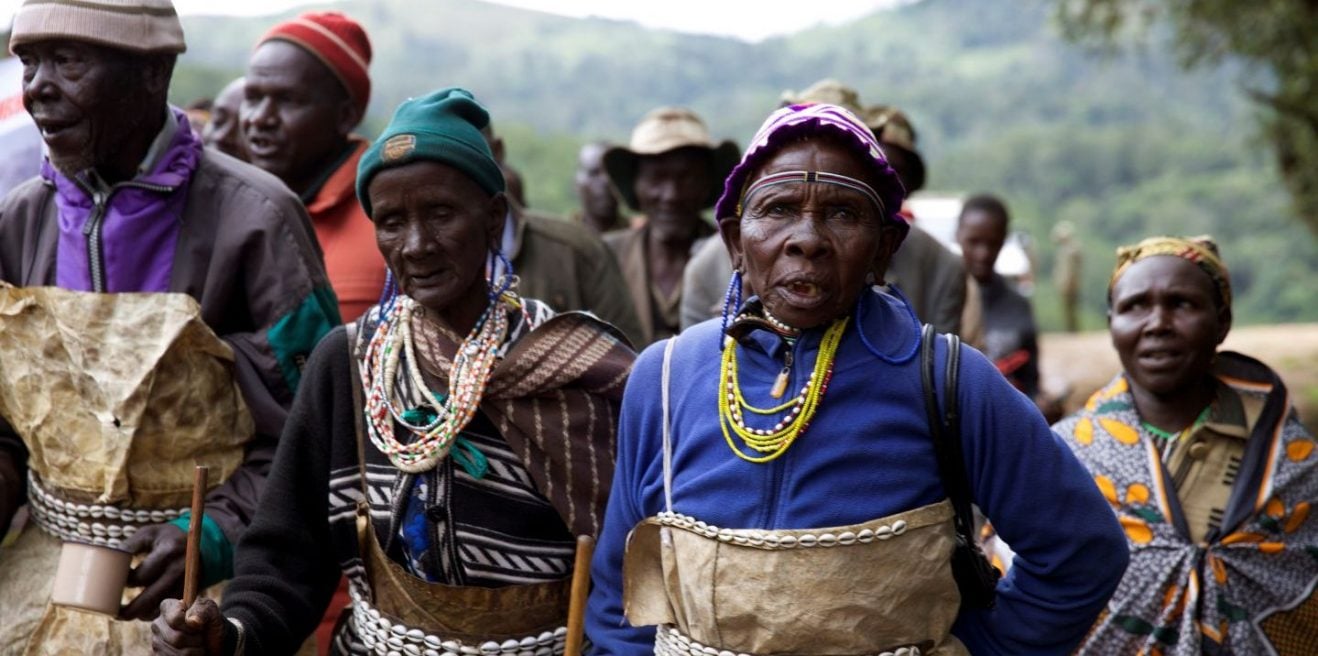Kenyan Forest Service guards have been responsible for repeated forced removals of the Sengwer community from their land in the Cherangany Hills area of the Embobut Forest. These evictions occurred as part of the World Bank-financed Natural Resource Management Project (NRMP). According to an investigation by the LA Times, the World Bank knew as early as 2010 about the removals in conjunction with the programme and warned the Kenyan government in 2011 that it would take action if they continued; however, the house-burnings and evictions persisted but no action was taken.
A revealing report by the World Bank Inspection Panel in May 2014, while exonerating the Bank from direct responsibility, concluded that it had failed to follow the ‘spirit and letter’ of its own policies by failing to safeguard the rights of the indigenous Sengwer or mitigate the risk of violations by the Kenya Forest Service in the implementation of the project. In light of the report, the World Bank scheduled a meeting with the representatives of Kenya’s Ministry of Environment, Water, and Natural Resources, the International Union for Conservation of nature (IUCN) and the Sengwer community in March 2015.
A week before the colloquium however, allegations emerged of a fresh wave of house burnings by government authorities. The subsequent talks were condemned by Sengwer representatives as a cosmetic process that failed to improve the security of the community. The EU’s new €31 million Water Tower Protection and Climate Change Mitigation and Adaptation Project in the same location looks set to continue the destruction. At the beginning of December 2016, the Kenyan government announced that all Sengwer would be evicted by the end of the year. And in the days after an EU delegation visited the community in spring 2017, a further 90 homes were reportedly destroyed.
These abuses have continued since, including the fatal shooting of a Sengwer man by KFS guards in January 2018 during a raid, prompting the EU to suspend a planned $35 million water conservation and climate change mitigation programme in the area. At the beginning of October 2020, in response to the failure of the government to address ongoing human rights violations against the community, the project was cancelled. Other violations have also occurred since the outbreak of Covid-19. Despite assurances from the Kenyan government that forced evictions would be suspended during the pandemic, in July 2020 dozens of Sengwer homes in Embobut were burnt to the ground and the families expelled from the forest.
A 2016 report that focused on the experiences of Sengwer women during successive waves of evictions reported that Sengwer women were being arrested in increasing numbers, a tactic used by security forces to extract bail from male members of the community. Moreover, Sengwer women are struggling to maintain their family livelihoods and cultural life. Women and children experienced health problems because of lack of access to forest resources, family cohesion has been undermined by the constant cycles of eviction, women had lost access to burial sites of their ancestors, as well as to ritual caves. In addition to this, Sengwer women report that they can be excluded from community decision making because of traditional patriarchal structures.


